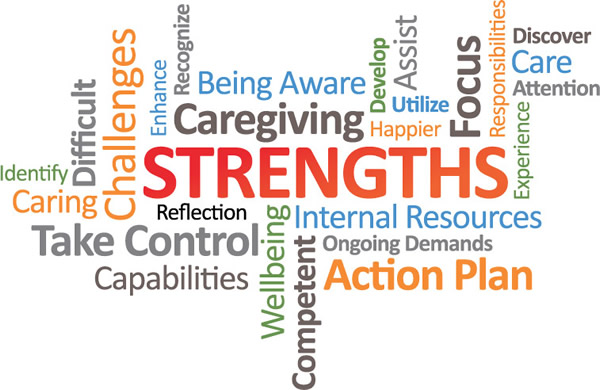Get Support If You Are a Caregiver

The Basics
When you are taking care of a loved one, make time to care for yourself, too. The emotional and physical stress of caregiving can cause health problems.
What is a caregiver?
A caregiver is someone who helps a family member, friend, or neighbor who is sick or has a disability. An informal or family caregiver often helps a loved one with basic daily tasks.
You may be a caregiver if you regularly help someone with:
- Grocery shopping
- Housework
- Getting dressed
- Taking and keeping track of medicine
- Medical care, like keeping wounds clean or giving shots
- Cooking food
- Transportation, like car rides to appointments
- Managing services, like talking to doctors or paying bills
About 1 in 3 Americans are caregivers. Most caregivers also have other jobs and spend an average of 24 hours a week caring for a loved one.
The stress of caregiving can lead to health problems.
When you are caring for a loved one, it can be hard to take care of your own health. Caregivers are more at risk for colds and the flu. They are also more likely to have long-term health problems, like arthritis, diabetes, or depression.
Here are some signs you may have caregiver stress:
- Feeling angry or sad
- Feeling like it’s more than you can handle
- Feeling like you don’t have time to care for yourself
- Sleeping too much or too little
- Having trouble eating, or eating too much
- Losing interest in things you used to enjoy
Find out more about caregiver stress.
The good news is that you can lower your risk for health problems if you take care of yourself and get support.
Take Action!
Take these steps to lower the stress of caregiving.
Take care of yourself.
Caregiving can be stressful. Stress can lead to problems like back pain and trouble sleeping. Taking care of yourself will give you the energy and strength to handle the demands of caregiving.
Take care of your body.
- Eat healthy to keep your body strong. Making smart food choices will help protect you from heart disease, bone loss, and high blood pressure.
- Get active to give you more energy. Aim for 2 hours and 30 minutes a week of moderate aerobic activity, like walking fast or dancing.
- Take steps to prevent back pain, like keeping your back straight and bending your knees when you lift something heavy.
- Make sure you get enough sleep. Most adults need 7 to 8 hours of sleep each night.
Take care of your mental health.
- Find ways to manage stress. Start by taking a few slow, deep breaths.
- Do something for yourself. Set aside time each day to do something you enjoy. Try reading, listening to music, or talking to a friend.
- Ask a neighbor to visit with your loved one while you take a walk.
- Get support from others to help you cope with the emotional stress of caregiving.
- Read these stories from other caregivers
– their experiences may be similar to yours.
Ask for help.
You don’t need to do it all yourself. Ask family members, friends, and neighbors to share caregiving tasks.
It’s also a good idea to find out about professional and volunteer services that can help. Use these links to find:
- Resources for caregivers
- Services and support groups for caregivers of veterans
- Community-based services for older adults and caregivers – like transportation, meals, and caregiver support programs
- Respite services near you
that can give you a break from caretaking
If you are taking care of someone with Alzheimer’s disease:
- Find resources for Alzheimer’s caregivers.
- Call the Alzheimer’s Association 24/7 Helpline at 1-800-272-3900
.
If you are feeling overwhelmed, talk with a doctor about depression.
